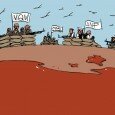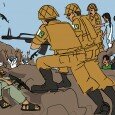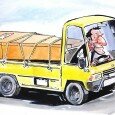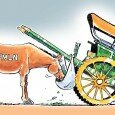The government needs to shake off its paralysis
January was marked by a spate of sectarian and terror attacks. Muslims of the Shiite sect, polio workers and members of the security forces were targeted in a string of suicide bombings across the country.
The unrelenting wave of terror left the country reeling, while demands for decisive action against militants once again found greater resonance. For a brief while, there seemed to be unanimity amongst the public to take action against militants. Those who advocate and give precedence to talks over everything else seemed to be on the back-foot.
North Waziristan, the terror redoubt, figured again in the national discourse. For too long, terror masterminds and handlers have found refuge in the rugged tribal badlands, and orchestrated their attacks on urban centres with impunity. It is imperative that terrorist safe havens in the tribal regions be dismantled if lasting peace is to be achieved.
Prime Minister Nawaz Sharif and the military leadership huddled together in late January and decided to chalk out an “operational plan” to deal with militants. It sounds reassuring, but the contours of this plan, much like the much touted national counter-terrorism policy, remain unclear.
Constantly deferring finalising the national security policy is unfortunate. Mr. Sharif has to exhibit leadership to develop a political consensus in order to deal with the spectre of terrorism and militancy. It is no time for vacillation; Mr. Sharif needs to seize the moment. Nawaz won last year’s general election on the promise of reviving the economy, but this cannot be achieved unless there is a conducive environment for foreign and domestic investment. An inability to deal with terrorism will keep pushing the country down the path of economic degradation and ruin. The government needs to shake off its paralysis and act decisively.
Unfortunately, much of the government’s attention seems focussed on sparring with the judiciary over the appointment of party favourites and loyalists to key government institutions. Meanwhile, the treason trial against former ruler Pervez Musharraf has also strained civil-military relations and polarised public opinion. Instead of being seen as an exercise in upholding the rule of law, it is increasingly being looked upon as a personal vendetta for the 1999 military coup. It is hard to know if the government is cognisant of its priorities – the most pressing issues and challenges. What’s needed is for it to rise up to the occasion.































































































